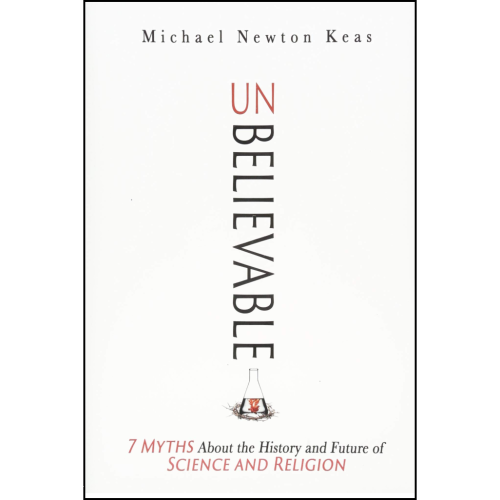Unbelievable
Michael Newton Keas. 2019. Intercollegiate Studies Institute. ISBN-13: 978-1610171533

Michael Newton Keas. 2019. Intercollegiate Studies Institute. ISBN-13: 978-1610171533

Many false myths about the history and relationship of Christianity and science have entered the popular culture. This book traces seven of these myths to their origins and shows that these false stories are the result of distortions of historical events, or in some cases, outright inventions of anti-Christian writers. Much of what the public has been told about the history of Christianity and science is highly inaccurate and misleading. The author, Michael Keas, is a historian of science, a senior fellow at the Discovery Institute, and a lecturer in the history of philosophy of science at Biola College. Keas selects his examples from the history of astronomy, perhaps because the issues seem most clearly illustrated in the history of that discipline.
The book contains twelve chapters with about 200 pages of text and 30 pages of endnotes. The extensive use of original historical sources and a survey of contemporary astronomy textbooks adds considerable value to the book. It will be of interest to anyone interested in the history of science and Christianity, especially those who have been taken in by some of the myths debunked in this volume.
The twelve chapters are arranged in two sections. Each of the first seven chapters tackles one of the myths about the history of science and Christianity. Among these myths are the claim that Medieval Christians believed in a flat earth, the twisted tale that Galileo’s experience illustrates the triumph of enlightened science over the darkness and dogmatism of Christianity, and the empty claims that modern science has revealed humans are just another species of animal without any special status. If the seven myths have a common theme, it is that the ascension of Christianity suppressed the development of science from the fifth through the 15th centuries, and modern science only developed once the shackles of Christian thinking were broken. In contrast, the book shows that the Christian Church actually fostered the development of science, and it is unlikely that science would have reached its present level of success without the theological and philosophical underpinnings of Christian thought.